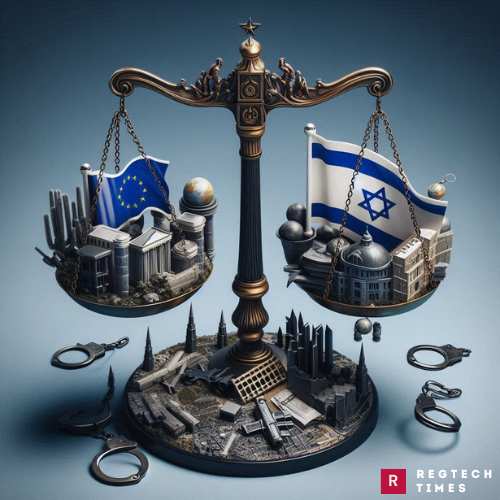The European Union (EU) has taken a notable diplomatic step by imposing sanctions on multiple Israeli individuals and entities. These measures are based on allegations of their role in “severe and systematic human rights abuses” against Palestinians in the West Bank and East Jerusalem. This decision highlights the EU’s commitment to enforcing human rights globally and marks a notable escalation in EU-Israel relations.
Individuals and Entities Targeted for Human Rights Abuses
The EU’s sanctions list includes five Israeli individuals and three entities accused of actions detrimental to human rights. Tzav 9, for instance, has been cited for obstructing humanitarian aid deliveries to the Gaza Strip, exacerbating the humanitarian crisis in the region. The group’s actions, according to EU statements, have impeded crucial supplies of food, water, and fuel to Gaza’s vulnerable population, deepening the hardships faced by Palestinians living under blockade.
Ben-Zion Gopstein, known for his leadership of the Lehava organization, which opposes Jewish assimilation, has also been targeted. Lehava has been criticized for its campaigns against interfaith relationships and its provocative demonstrations, which some argue contribute to tensions between Jewish and Arab communities. Isaschar Manne, associated with an unauthorized outpost in the West Bank, is among those sanctioned for his role in settlements deemed illegal under international law, which have been a focal point of controversy in the Israeli-Palestinian conflict.
Details of EU Human Rights Sanctions and Their Impact
Implemented under the EU Global Human Rights Sanctions Regime, these measures involve asset freezes and travel bans within EU member states for the sanctioned individuals and entities. By restricting their financial activities and international mobility, the EU aims to hold accountable those accused of human rights violations on a global scale. These sanctions are part of broader efforts to enforce international law and promote respect for human rights worldwide.
Reactions and Criticisms of the Sanctions on Human Rights Grounds
The EU’s action has prompted diverse responses. Israeli Finance Minister Bezalel Smotrich strongly criticized the sanctions, labeling them “inappropriate and unacceptable.” He argued that such measures interfere with Israeli democracy and infringe upon freedom of expression. Within Israel, critics of the sanctions view them as potentially damaging to bilateral relations and counterproductive to ongoing peace efforts in the region. Some political figures have denounced the sanctions as foreign interference in domestic affairs, asserting that they undermine Israel’s sovereignty and democratic processes.
International Context and Support for Human Rights Enforcement
Despite criticisms, proponents of the sanctions argue they are necessary to address persistent allegations of human rights abuses in the Israeli-Palestinian conflict. The EU’s stance aligns with other international bodies committed to upholding international law and promoting respect for human rights through targeted sanctions. By imposing these measures, the EU seeks to send a clear message about accountability for human rights violations in conflict zones.
The United States, among other nations, has previously imposed sanctions on some of the individuals now targeted by the EU, citing concerns over their involvement in activities deemed detrimental to peace and stability in the region. This international coordination highlights the gravity of the allegations against the sanctioned individuals and the growing consensus among Western nations regarding the need to address human rights abuses in the Israeli-Palestinian context.
Broader Implications and Future Outlook for Human Rights
The EU’s imposition of sanctions reflects a growing global scrutiny of Israeli policies in the occupied territories. It highlights broader international efforts to use diplomatic and economic measures to promote human rights and ensure accountability for violations. Moving forward, the effectiveness of these sanctions in achieving their objectives will depend on diplomatic engagements and their impact on Israeli policies concerning the occupied territories.
Critics argue that sanctions may have limited effectiveness in altering Israeli policies and could instead entrench political divisions. However, supporters contend that such measures are essential to uphold international norms and pressure all parties to engage constructively towards a peaceful resolution of the Israeli-Palestinian conflict.


